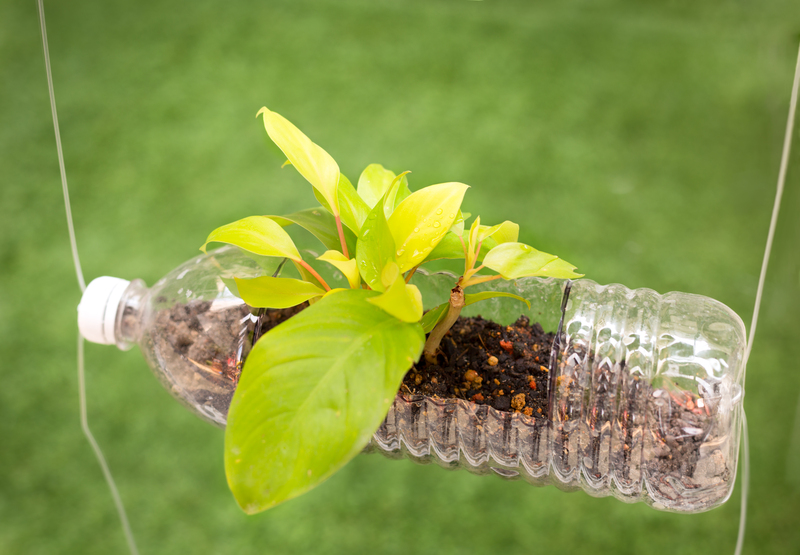Eco-Savvy Tips for Recycling Smartphones
In today's rapidly evolving technological landscape, smartphones have become an integral part of our daily lives. As these devices continue to advance, the frequency of upgrades and replacements has increased, contributing significantly to the global e-waste problem. Recycling smartphones effectively is not just a necessity but a responsibility. This guide provides invaluable eco-savvy tips for recycling your smartphones while ensuring minimal environmental impact.
Understanding the Importance of Smartphone Recycling
Before diving into the tips, it's crucial to grasp why recycling smartphones is so significant. The production of smartphones involves the use of rare earth metals, hazardous chemicals, and significant energy. When these devices are disposed of improperly, they can release toxic substances into the environment, affecting soil and water quality.
By recycling smartphones, you can:
- Reduce e-waste in landfills: Millions of smartphones are discarded each year, contributing to growing e-waste. Recycling helps minimize this impact.
- Conserve precious resources: The precious metals used in phones can be retrieved and reused, reducing the need for further mining.
- Prevent environmental contamination: Proper recycling prevents the release of toxic substances into the environment.
- Support sustainability: Recycling supports a circular economy where products and materials are continuously reused.

Eco-Savvy Tips for Recycling Your Smartphones
1. Properly Evaluate Your Device
Before recycling, evaluate whether your smartphone needs to be replaced or if minor repairs can extend its life. Upgrading unnecessarily contributes to the cycle of consumption and waste. If the device functions well, consider using it longer.
2. Data Backup and Security
Before parting with your phone, backing up your data is essential. Transfer important files, photos, and contacts to a computer or cloud storage. Ensure you perform a factory reset to erase personal information, safeguarding yourself against identity theft.
3. Donate or Sell
One of the sustainable ways to recycle is by passing it on. Consider donating your old phone to someone in need or to organizations that refurbish and provide them to those who cannot afford new ones. If it's in good condition, selling it is also an eco-savvy option that extends the device's lifespan.
4. Utilize Official Recycling Programs
Many smartphone companies have established official recycling programs. Apple's 'GiveBack' and Samsung's 'Re+ Program' are excellent examples. These programs ensure that your device is recycled responsibly, and they often offer trade-in values for newer devices.
5. Explore Local E-Waste Recycling Centers
Numerous local entities and e-waste recycling centers specialize in processing electronic devices safely. It's important to research and choose facilities with certifications to ensure they follow environmentally-friendly procedures.
6. Participate in Tech Recycling Events
Many communities and organizations host e-waste recycling events periodically. Participating in these events can ensure responsible recycling of your smartphones. Stay updated with local municipal websites for the next event near you.
7. Refurbishing and Repurposing
If your smartphone is outdated but functional, consider refurbishment. Update its operating system, replace parts, or use it for security cameras or digital photo frames instead of discarding it.

Understanding the Components of Recycling
Reclaiming Valuable Materials
The core of smartphone recycling lies in reclaiming valuable materials like gold, silver, and palladium. These metals are crucial for manufacturing and can be infinitely recycled, contributing to substantial reductions in resource extraction.
Safe Disposal of Toxic Elements
Smartphones also contain harmful components like lead, mercury, and cadmium, which require specialized disposal processes. Eco-conscious recycling centers ensure these elements are disposed of in compliance with environmental regulations.
Promoting a Circular Economy
Recycling is essential for promoting a circular economy where products are reused, repaired, and revitalized instead of being disposed of. This model significantly curtails the environmental footprint associated with new device production.
Conclusion: Your Impact Matters
The journey towards sustainable smartphone usage and recycling is both an individual responsibility and a collective effort. By adopting these eco-friendly practices, we can significantly mitigate the environmental challenges posed by e-waste. Embracing these eco-savvy tips for recycling smartphones not only helps preserve our planet but also fosters a culture of sustainability for future generations.
The next time you're considering upgrading your device, remember that every small step counts. Act wisely, recycle responsibly, and contribute to a greener, more sustainable planet. Always stay informed about changes and improvements in e-waste management to ensure you're up-to-date with the best practices for smartphone recycling.